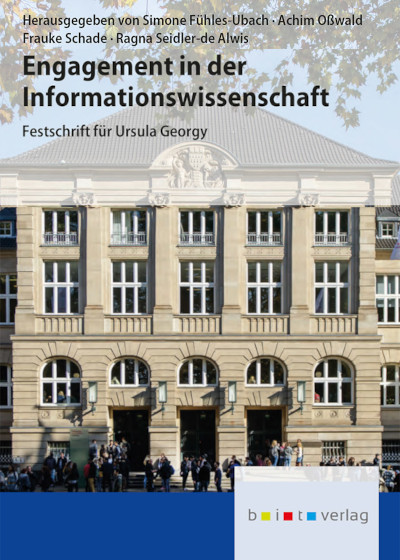 WEITERE NEWS
WEITERE NEWS
- Kitodo-Projektausschreibung Security Issues – bis 13.02.2026
- Open Journals Collective launches to give libraries 'exit ramp' from big deals
- 14 deutsche Hochschulbibliothek wollen gemeinsam Open-Access-Infrastruktur stärken
- StudyCheck Award: Studierende werten Uni Hohenheim als „Top-Universität 2026“
- Woche der Meinungsfreiheit: Was ist wahr?
- Die nächste Generation an Desinformation
- Es ist offiziell: Wir haben die schönste Universitätsbibliothek (und einen starken Instagram-Account)
- Kathrin Brannemann ist neue Direktorin der Deutschen Nationalbibliothek in Frankfurt am Main

Aktuelles aus
L
ibrary
Essentials
In der Ausgabe
- Soziale Medien und Aufmerksamkeitsentwicklung bei Kindern: Neue Langzeitdaten zur ADHS-Risikodiskussion
- Repositorien im Wandel: Analyse zentraler Einflussfaktoren für die nächsten Jahre
- Wie inklusiv Sammlungen in Bibliotheken und Archiven wirklich sind
- Synergien von KI-Chat und Suche:
Wie unterschiedliche Altersgruppen
Information Retrieval neu gestalten - Kulturerbe-Daten im Zeitalter der KI:
Ein neues Zugangsmodell für Institutionen - Jugendliche, soziale Medien und KI-Chatbots: Digitale Nutzungsrealitäten 2025
- Buchclubs als unterschätzte Brücke zwischen Campusleben und Bibliothek: Neue Impulse aus US-Hochschulbibliotheken
- AI Librarian in Japan
- Altersgrenzen für soziale Medien:
Europas nächste Regulierungsdebatte - KI und Journalismus:
Neue Machtverschiebungen
im Markt für Nachrichteninhalte - Print ist tot, es lebe Print!

fachbuchjournal























































